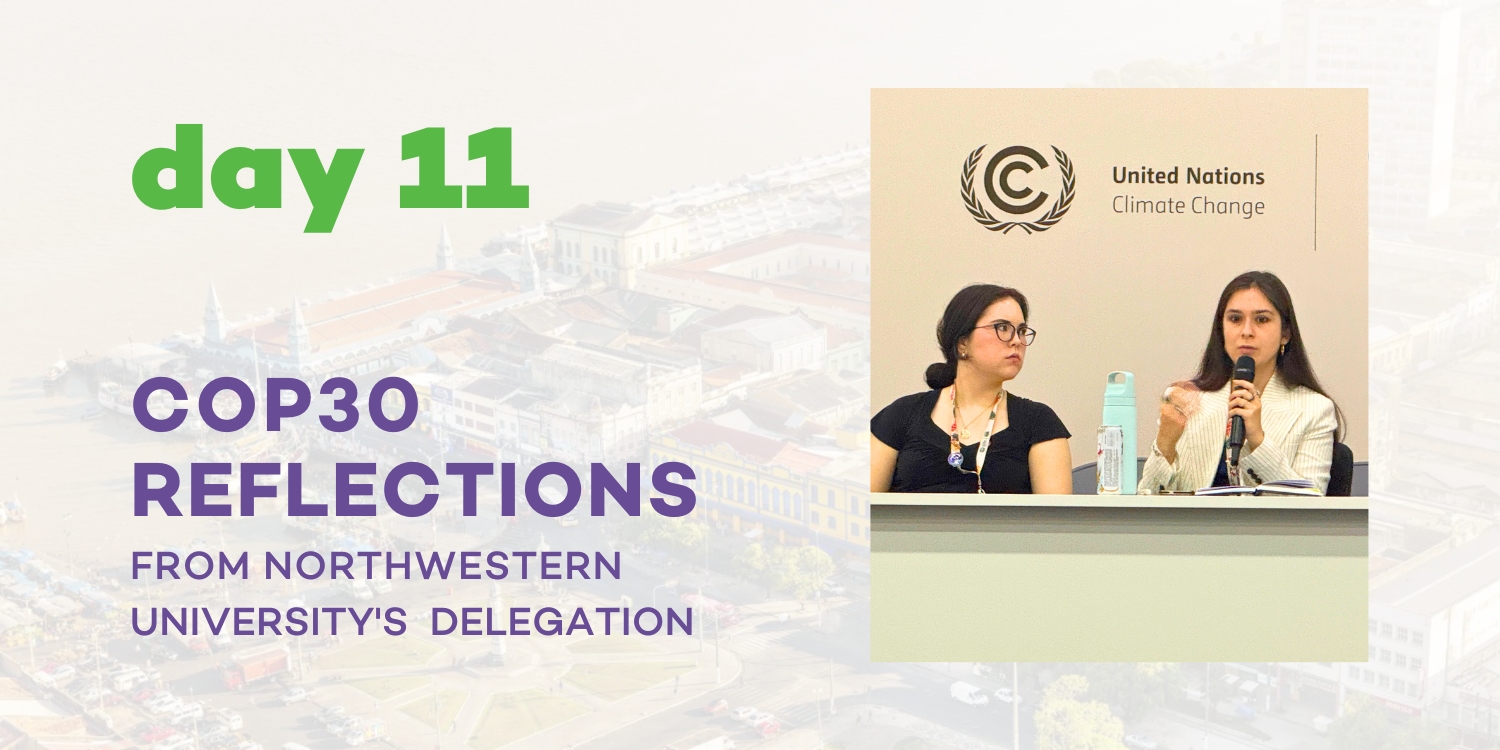Reflections from Northwestern University's COP30 Delegation: Day 11
For a fifth year, a delegation of Northwestern University students and faculty supported by the Roberta Buffett Institute is among more than 50,000 researchers, policymakers, industry leaders, and activists at the world’s largest annual international treaty negotiations and climate summit, the 30th Conference of Parties (COP30) to the United Nations Framework Convention on Climate Change (UNFCCC), held this year in Belém, Brazil. Each day, a different Northwestern delegate is blogging about their experiences and reflections. Day 11 features Javiera Cabezas Parra, a PhD student in the Department of Chemical and Biological Engineering.
This COP Is on Fire: Day 4 Was an Adventure
Today was the fourth day that I attended COP30, and the second-to-last before the conference wraps up. During this time, it is usually expected for negotiations to continue late into the night, and we eagerly await important final decisions to be agreed upon by the parties. There have been rumors of a plenary event at the very end of negotiations where some interesting things could happen, in terms of who might object at the last minute, preventing the parties from reaching consensus after two weeks of drafting and re-drafting. In other words, an exciting and stressful time, in different measures depending on how partial you are to geopolitical gossip and the amount of dread you feel at the thought of surpassing the 1.5°C target. The day did not, however, proceed as expected.
I am a PhD student in the Department of Chemical and Biological Engineering at Northwestern University, and I am also Chilean. My reason for being at COP30 is to carry out a short research project on how the geographical location of this COP affects the level of attendance of traditionally underrepresented regional scientists, engineers, and STEM experts. Essentially, was it easier for Latin American (LatAm) people with a STEM background to attend this year because the host country is Brazil, or did this not make a difference?
Because of this, I have been gathering testimonials from a series of professionals whom I have met at this conference and arrived at some unexpected conclusions. Today I had two interviews scheduled and was hoping to catch two more high-level experts at the closing of their respective events to get their input. I was then planning on developing some conclusions and publishing them in this post as a preview of my upcoming project report. That will not be the main content of this post, because today was not a normal day.
The day did start as expected; at 9 a.m. we grabbed coffee from the Turkish Pavilion, and I briefly stopped by the Ocean Pavilion to catch the beginning of a panel led by a Colombian conservation NGO. This was the only LatAm led event in this pavilion’s program for the week, as far as I could tell, and only two out of six women present were scientists. Individual LatAm countries have been hosting the occasional scientist as well as their own national research institutes, but the invited programming at these larger pavilions on the main floor continues to be mostly, if not solely, dominated by global north organizations and institutions.
I continued onto the Research and Independent Non-Governmental Organizations (RINGO) constituency coordination meeting with other members of the Northwestern delegation where we got some updates about the negotiations (fears about Russia and/or India blocking the resolutions at the plenary), sat through a technical presentation, and added a few more events to our schedules. I then had a few questions about becoming a Contributing Author or Expert Reviewer for an Intergovernmental Panel on Climate Change (IPCC) methodology report, which were answered.
I had my first interview of the day right after, where I met with a Mexican biotechnology engineer who was attending her first COP, while having attended last year’s Biodiversity COP in Cali, Colombia. We also agreed to meet later to film a video that would share my research project with her network. I know the day seems to be going great so far, bear with me.
At 11:30 a.m., I was part of the “Higher Education as a Critical Global Partner for Enabling and Accelerating Climate Action” panel hosted by Higher Education for Climate Action, which was a wonderful experience and an opportunity I am extremely thankful for. I was surprised by the level of attendance, and I am glad that the other panelists and I got to share our varied experiences with each other and the audience, as well as with the subsequent panel of professors.
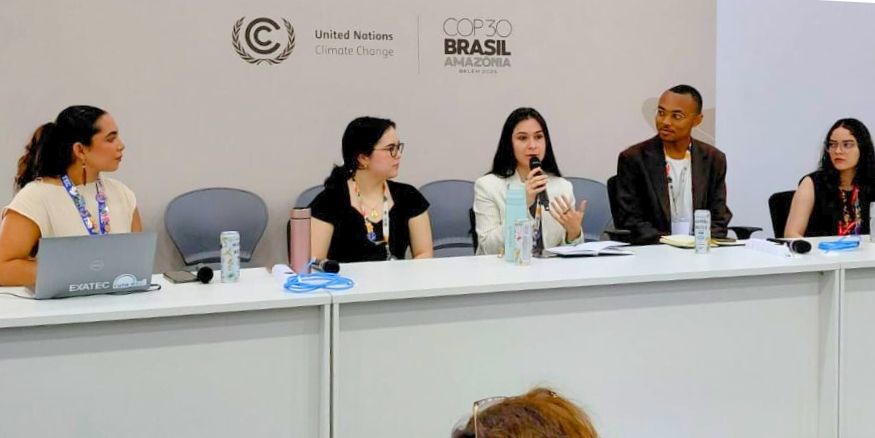
“Higher Education as a Critical Global Partner for Enabling and Accelerating Climate Action” panel. Left to right: Valeria Soto, Phoenix Boggs, Javiera Cabezas Parra, Aminieli Hopson, Fernanda Muraira
I quickly ran over to an event at the Chilean Pavilion about following up on the Baku declaration on methane in the Nationally Determined Contributions (NDCs) of LatAm and the Caribbean, hoping to catch Chile’s Minister of Environment, who is a scientist herself and whom I had been trying to reach for a couple of days with help from other members of the Chilean delegation. Sadly, her schedule was packed, and she left in a hurry. I tried to follow her, but sadly I was too slow, and she disappeared.
This is where things took a turn.
My newly freed-up schedule allowed me to explore the Green Zone half an hour earlier than expected, so I was joined by two fellow Northwestern students, and off we went. We had been in the Green Zone for all of five minutes taking a bathroom break (several think pieces could be written about the comparison between the restrooms in the Blue and Green Zones alone, but I digress) when variations of the following WhatsApp message began to hit our phones:
“Fire. Get out now.”
A few seconds of confusion were quickly replaced by images of a pavilion completely up in flames in the middle of the Blue Zone. No one else in the Green Zone seemed to be aware. This was a good time to remember the requirements for coming on this trip: being flexible, capable of overcoming challenges, and at least a little adventurous. The Green Zone soon began to evacuate to the outdoor area, some people started pushing, but we left safely and stood in the tropical heat for entirely too long before making our way out of the venue. There, an older man from the UK needed help getting an Uber, as did some 50,000 other people. He had lost his phone the day prior, so he whipped out his laptop to use the hotspot from my colleague’s phone. We were still outside, it was still over 30°C with over 80% humidity, and we still did not know where to go amongst the chaos or if the fire had been contained yet. After loitering around with a few thousand of our closest environmentally conscious friends, we learned that the COP30 buses were still running.
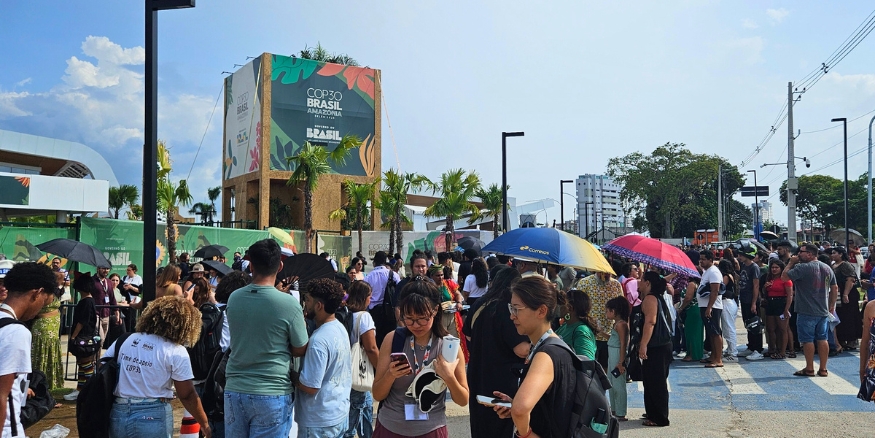
Crowd outside the Green Zone
They were only a 30-minute walk down the highway, so we went; as far as we were concerned, the Blue Zone was still on fire. This was a great time to be wearing business casual attire. After some 20 minutes in the sweltering heat, we spotted our salvation: a gas station. Inside, we sat down to drink copious amounts of refrigerated beverages and met a student from University of California San Diego who had overlapping research interests with the group. Against all odds, we networked. As were leaving, one of us bought one piece of bread for 1 Reais, roughly 19 cents. We got to enjoy the bread for roughly 19 seconds before our bus—which we weren’t hoping to catch until we continued our infernal walk—materialized on the highway. We were now running towards the bus, waving bread in the air in the universal sign for “driver, please stop the bus,” yelling goodbye to this girl who was now stranded and alone at the gas station but also now had three more LinkedIn connections.
In the bus, I took the time to check the many WhatsApp groups I had joined since arriving in Belém. We got updates on the situation, and it was honestly heartwarming how everyone looked out for each other. People I had met only once were asking me if we were alright, I was checking in on the people I had interviewed, and everyone offered help if something was needed. The highlight was the Chilean delegation/civil society group chat. For about 30 minutes, the situation was taken extremely seriously. The group mobilized quickly, making sure everyone was accounted for and safe, giving evacuation information and finding attendees who couldn’t be located initially, even from other delegations. Then, as soon as it was confirmed that the threat had passed, they all banded together in the face of catastrophe (as only a nation that is used to natural disasters and rescue scenarios can) to do what we do best: make memes and WhatsApp stickers of the COP30 fire.
Notable (translated) jokes include: “crazy… we had the Immersive Climate Experience days… flooding, fires… heat waves,” “the carbon footprint of this event has been brutal,” with the reply of “it was supposedly carbon neutral,” and later someone suggestively asked, “so where are we heading to get over this fright?” implying it was time to go drinking. No one joined him, seeing as fellow countrymen were already shopping at the supermarket or hitting the gym, as one does immediately after escaping a fire. Luckily, it was someone’s birthday, so hours later a night out on the town was planned anyways. The last joke was directed at the birthday girl: “Huge candle you had to blow out, there.” This is a historical and cultural coping mechanism.
While I looked at my phone, the bus overshot our stop. So back we went, adding another eight billion steps to our daily count under the heat.
We got home, ate leftover chicken for dinner, and two of us dove deep into understanding the relationship between the terminology used in the negotiation agendas, the articles or agreements that were being modified, and the actual file names for the negotiation drafts. The other Northwestern, delegate already had a better grasp of this, so he fell asleep at the table, seeing as he had only slept a handful of hours the night before. He transferred to the couch while we accidentally looked at the wrong negotiation agenda (CMA7 instead of COP30, we were still learning) and ate fresh fruit (when in Amazonia, right?). We were waiting for an email statement—would the venue re-open? Would we be able to return? Was the infamous plenary happening tonight? We finally had time to sit down and teach ourselves the acronyms needed to understand these negotiations, so we just wanted an uneventful wait while we finally figured out terminology that would be essential to effectively follow the final resolutions.
It remained uneventful until I found a gecko in our bathroom.
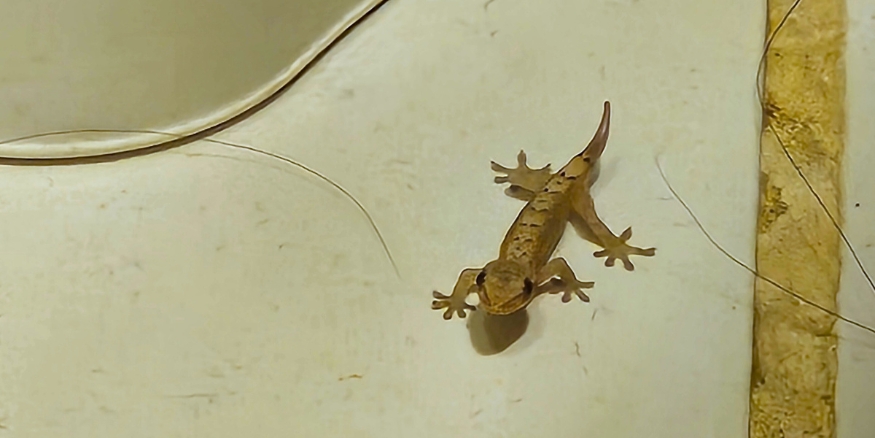
A new friend
It was obviously an incredibly long day, but it’s not that bad if you think of it as an adventure. Sometimes you plan interviews to finish a research project, and the event space catches on fire. Sometimes you plan on writing a normal, brief reflection and that goes out the window when nothing normal or brief happens. No one was injured per the reports we received, but it was still a dangerous situation that led to a physically strenuous day as we embarked on that odyssey to get back home. I have to retell these anecdotes with humor, because we found moments of fun amongst all that nonsense, and those glimmers of positivity are what keeps you resilient throughout life, and in this case, through research. It is very easy to get burnt out; I have been hearing that from participants all throughout COP, particularly while working on combating climate change which is easy to start mentally catastrophizing, but also from any other type of research where major hiccups like these prevent you from getting to the point that you need to be at. Resilience doesn’t need to look serious all the time, and I think it’s always worth taking a page from the Chilean book.
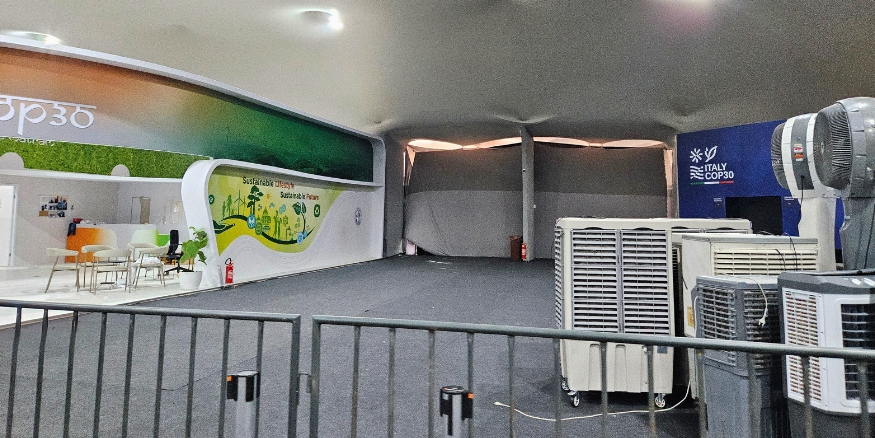
Closed off pavilion section on Saturday morning
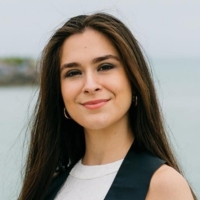 Javiera Cabezas Parra is a PhD student in the Department of Chemical and Biological Engineering at Northwestern University. She researches inverse plasmonic photocatalysts for sustainable applications. Before graduate school, Javiera obtained her BS in Chemical Engineering with a specialization in nanotechnology and molecular engineering from Northwestern. During this time, she joined the Swearer Research Group, where she developed and characterized supported plasmonic nanoparticles to understand synthesis-structure relationships. She remains a part of this group and is now also a member of the Notestein Research Group. Outside the lab, Javiera is involved with the Graduate Society of Women Engineers (GradSWE) as Co-Social Chair, focusing on fostering community amongst women in engineering as well as with department-specific accessibility initiatives.
Javiera Cabezas Parra is a PhD student in the Department of Chemical and Biological Engineering at Northwestern University. She researches inverse plasmonic photocatalysts for sustainable applications. Before graduate school, Javiera obtained her BS in Chemical Engineering with a specialization in nanotechnology and molecular engineering from Northwestern. During this time, she joined the Swearer Research Group, where she developed and characterized supported plasmonic nanoparticles to understand synthesis-structure relationships. She remains a part of this group and is now also a member of the Notestein Research Group. Outside the lab, Javiera is involved with the Graduate Society of Women Engineers (GradSWE) as Co-Social Chair, focusing on fostering community amongst women in engineering as well as with department-specific accessibility initiatives.

